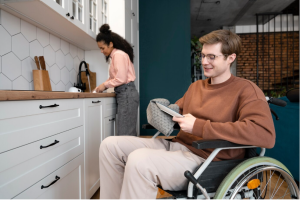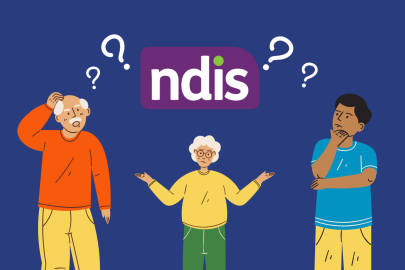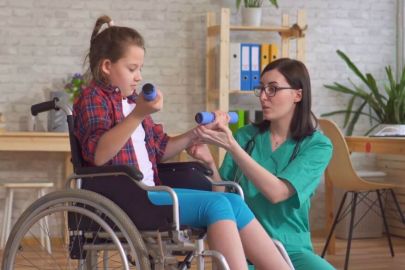Maximizing NDIS for Life Skills: Strategies for Optimal Outcomes
The National Disability Insurance Scheme (NDIS) offers vital support to individuals with disabilities, focusing on enhancing their quality of life and independence. One key area where NDIS can make a significant impact is in life skills development. This article provides insights into how to maximize NDIS support for life skills, offering strategies and tips to achieve the best possible outcomes.
Understanding NDIS and Its Role in Life Skills Development
The NDIS is designed to provide personalized support to people with disabilities, helping them achieve their goals and improve their daily living abilities. Life skills development is a core component of this support, aiming to equip individuals with essential abilities for managing their lives independently.
1. What Are Life Skills?
Daily Living Skills
Daily living skills include personal hygiene, cooking, and household management. These skills are essential for personal independence and maintaining a self-sufficient lifestyle.
Social and Communication Skills
Social and communication skills involve interacting with others, expressing needs, and forming relationships. These skills are crucial for social inclusion and building meaningful connections.
Problem-Solving and Decision-Making Skills
Problem-solving and decision-making skills help individuals handle challenges and make informed choices. These abilities are important for achieving personal goals and navigating daily life effectively.
Strategies for Maximizing NDIS Support for Life Skills
To get the most out of NDIS support for life skills development, individuals and their caregivers should employ strategic approaches to ensure that the available resources are utilized effectively.
1. Develop a Comprehensive Support Plan
Set Clear Goals
Start by setting clear, achievable goals for life skills development. These goals should be specific, measurable, and aligned with the individual’s needs and aspirations. For instance, a goal might be to improve cooking skills to enable meal preparation independently.
Create an Individualized Plan
Work with an NDIS planner to create an individualized support plan that outlines the necessary resources, funding, and services required to achieve the set goals. This plan should be tailored to the individual’s unique needs and preferences.
2. Utilize Available Resources and Funding
Access Skill Development Programs
The NDIS provides funding for various skill development programs, including workshops and training sessions. These programs can help individuals build essential life skills in areas such as personal care, household management, and social interactions.
Invest in Assistive Technologies
Assistive technologies play a crucial role in supporting life skills development. The NDIS funds devices and tools that can aid in communication, mobility, and daily tasks. For example, adaptive kitchen tools can help someone with limited dexterity cook more easily.
3. Engage with Specialist Services

Work with Therapists and Coaches
Engage with specialists such as occupational therapists, speech therapists, and life skills coaches. These professionals provide targeted support and strategies to help individuals develop and enhance their life skills effectively.
Participate in Community Programs
The NDIS supports community programs that promote social inclusion and engagement. These programs offer practical opportunities for individuals to practice and refine their social skills in real-world settings.
4. Regularly Review and Adjust the Support Plan
Monitor Progress
Regularly monitor progress towards life skills development goals. This involves evaluating how well the support plan is working and whether the individual is making strides in their skills development.
Adjust the Plan as Needed
Based on progress reviews, make necessary adjustments to the support plan. This might include modifying goals, reallocating resources, or accessing additional services to better meet the individual’s evolving needs.
Benefits of Maximizing NDIS for Life Skills
Effectively utilizing NDIS support for life skills development offers numerous benefits, contributing to overall well-being and independence.
1. Enhanced Independence
By mastering essential life skills, individuals gain greater independence and self-sufficiency. This empowerment leads to increased confidence and the ability to manage daily routines without reliance on others.
2. Improved Quality of Life
Life skills development enhances overall quality of life by enabling individuals to participate fully in everyday activities, maintain personal relationships, and manage their living environment effectively.
3. Greater Social Integration
Developing social and communication skills helps individuals integrate into their communities more seamlessly. Improved social interactions reduce feelings of isolation and foster a sense of belonging.
4. Enhanced Problem-Solving Capabilities
Strong problem-solving and decision-making skills equip individuals to handle challenges more effectively and make informed choices, leading to improved overall satisfaction and goal achievement.
How to Get Started with Maximizing NDIS Support
1. Contact an NDIS Planner
Reach out to an NDIS planner to discuss your goals and needs. The planner will help develop a personalized support plan and guide you through the process of accessing available resources and funding.
2. Explore Available Programs and Services
Research and explore the various skill development programs, assistive technologies, and specialist services available through the NDIS. Choose those that align with your goals and needs.
3. Regularly Review and Adjust Your Plan
Continuously review your progress and make adjustments to your support plan as needed. Regular evaluations ensure that the support remains effective and relevant to your evolving needs.
Conclusion
Maximizing NDIS support for life skills development is essential for enhancing independence and improving the overall quality of life for individuals with disabilities. By setting clear goals, utilizing available resources, engaging with specialist services, and regularly reviewing progress, individuals can achieve significant strides in their life skills. Leveraging these strategies will lead to greater self-sufficiency, social integration, and personal satisfaction.




